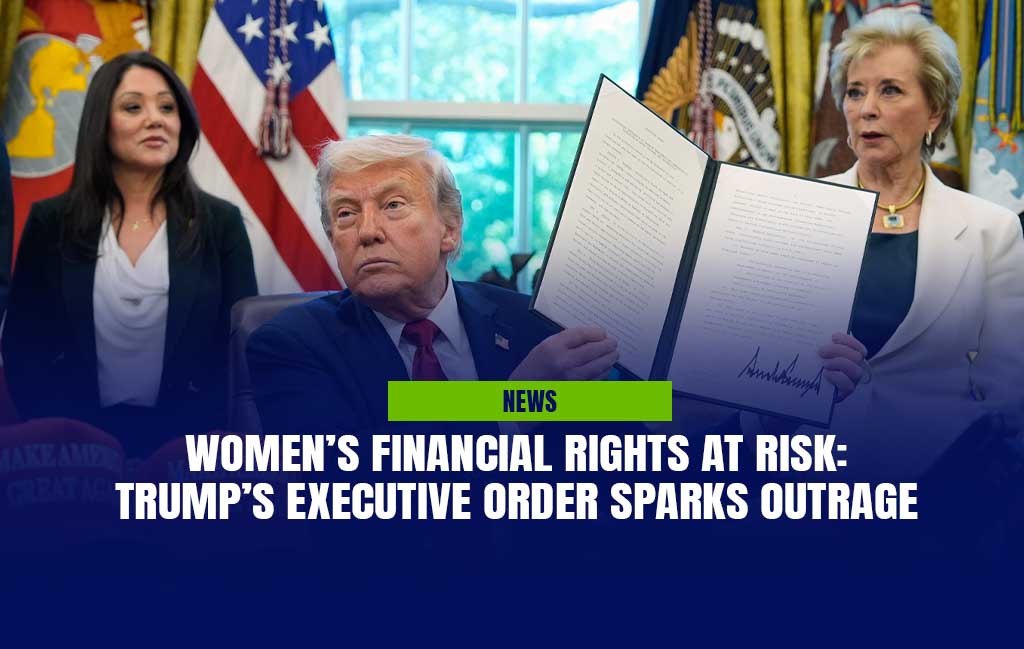⚠️ Trump’s Executive Order Could Put Women’s Financial Independence in Jeopardy — Here’s What You Need to Know
President Donald Trump just signed an Executive Order that’s sparking serious concern for women’s financial rights and civil liberties.
The EO, titled “Restoring Equality of Opportunity and Meritocracy,” aims to overhaul how gender and race are considered in credit and employment decisions — but critics warn it could undermine women’s financial independence. Here’s why this matters:
🏦 Women’s Financial Freedom Under Threat?
Trump’s EO orders a review of the Equal Credit Opportunity Act (ECOA), which has protected women from being discriminated against in credit decisions since 1974.
While the law itself can’t be changed without Congress, this order allows federal agencies to halt litigation that protects women from credit discrimination — potentially leaving them vulnerable in a male-dominated financial system.
Targeting Civil Rights Protection
The EO also targets disparate-impact liability, the idea that certain policies can disproportionately harm certain groups, even if there’s no explicit intent to discriminate. Critics argue this could allow for more biased hiring practices and roll back protections against gender and race discrimination in housing, employment, and credit.
Why It Matters for Women
Before the ECOA, women were often forced to have a male co-signer for credit cards or loans. This EO could reverse progress, making it harder for women and minorities to access financial opportunities.
The Big Picture
Trump’s EO also impacts Title VI (federal funding for non-discriminatory programs) and Title VII (employment discrimination). The Attorney General is now empowered to amend civil rights regulations, potentially weakening enforcement and data collection on discrimination.
What Experts Are Saying
Ben Olinsky from the Center for American Progress warned:
“Without federal action, women and minorities could have less access to credit, and it will be harder for them to challenge discrimination.”
Trump argues that disparate-impact liability impedes “equal opportunity” — but many fear this could set back civil rights and perpetuate inequality.
What’s Next?
This could spark a major legal battle as it works its way up to the Supreme Court, potentially rolling back decades of civil rights protections.

